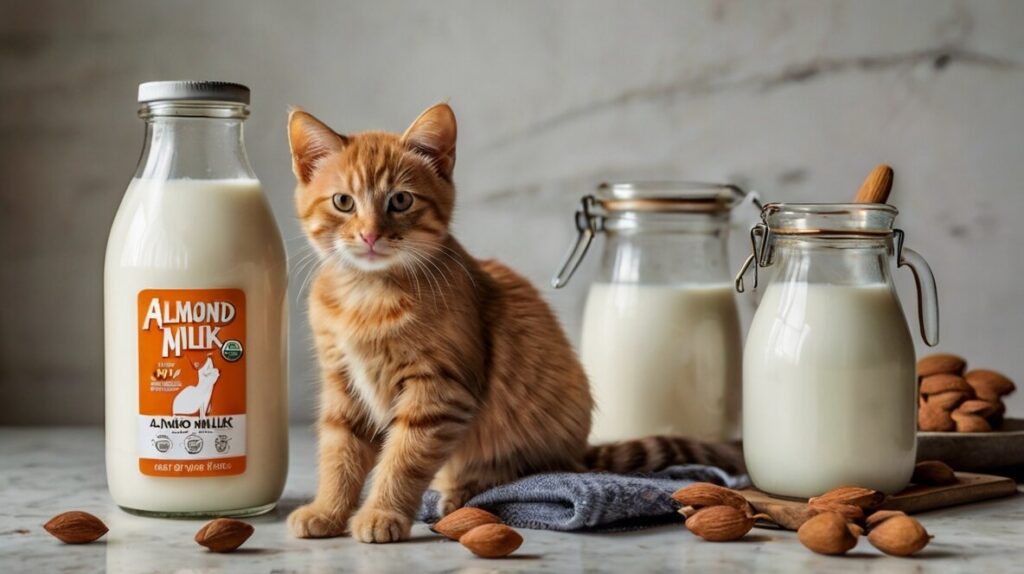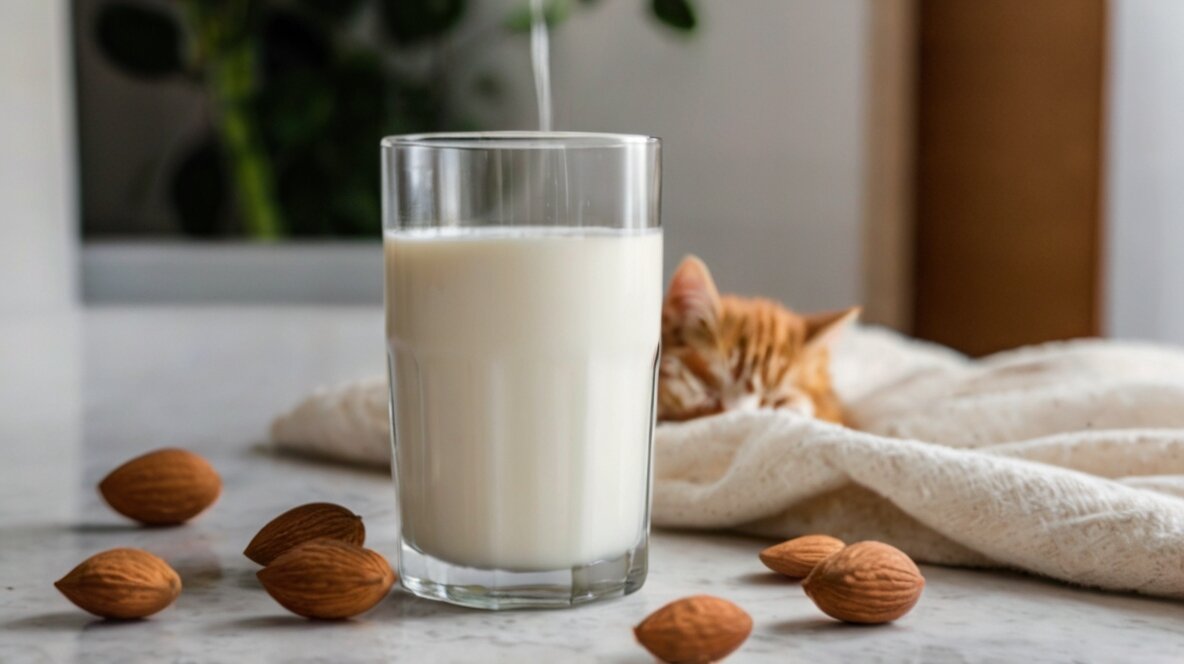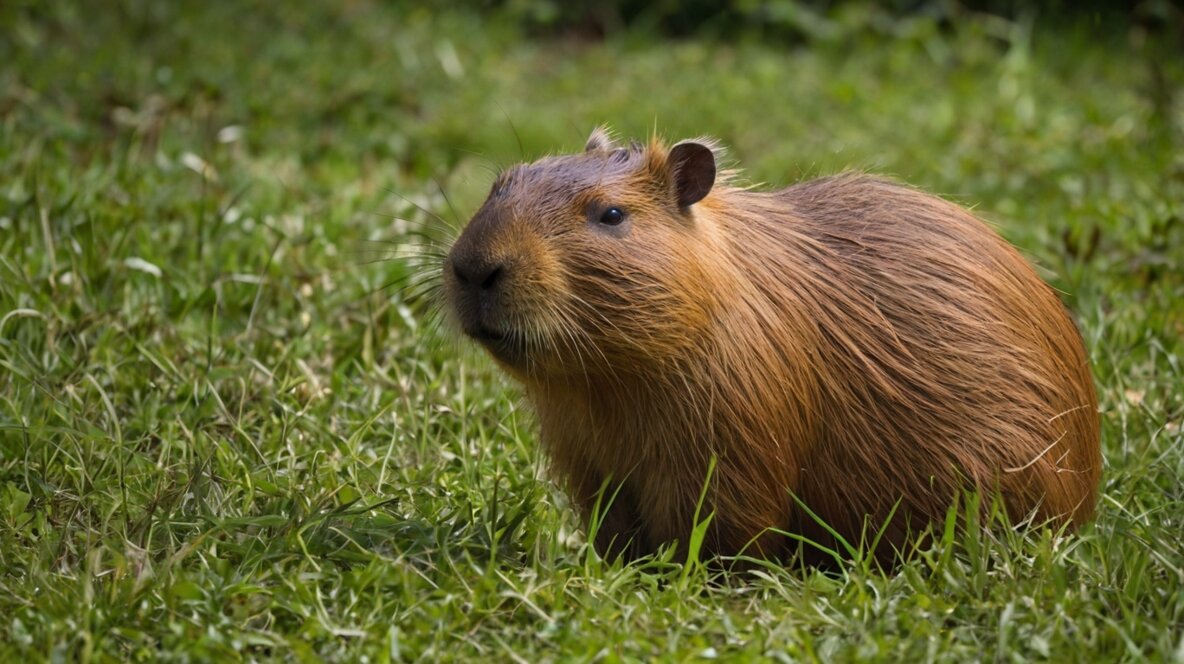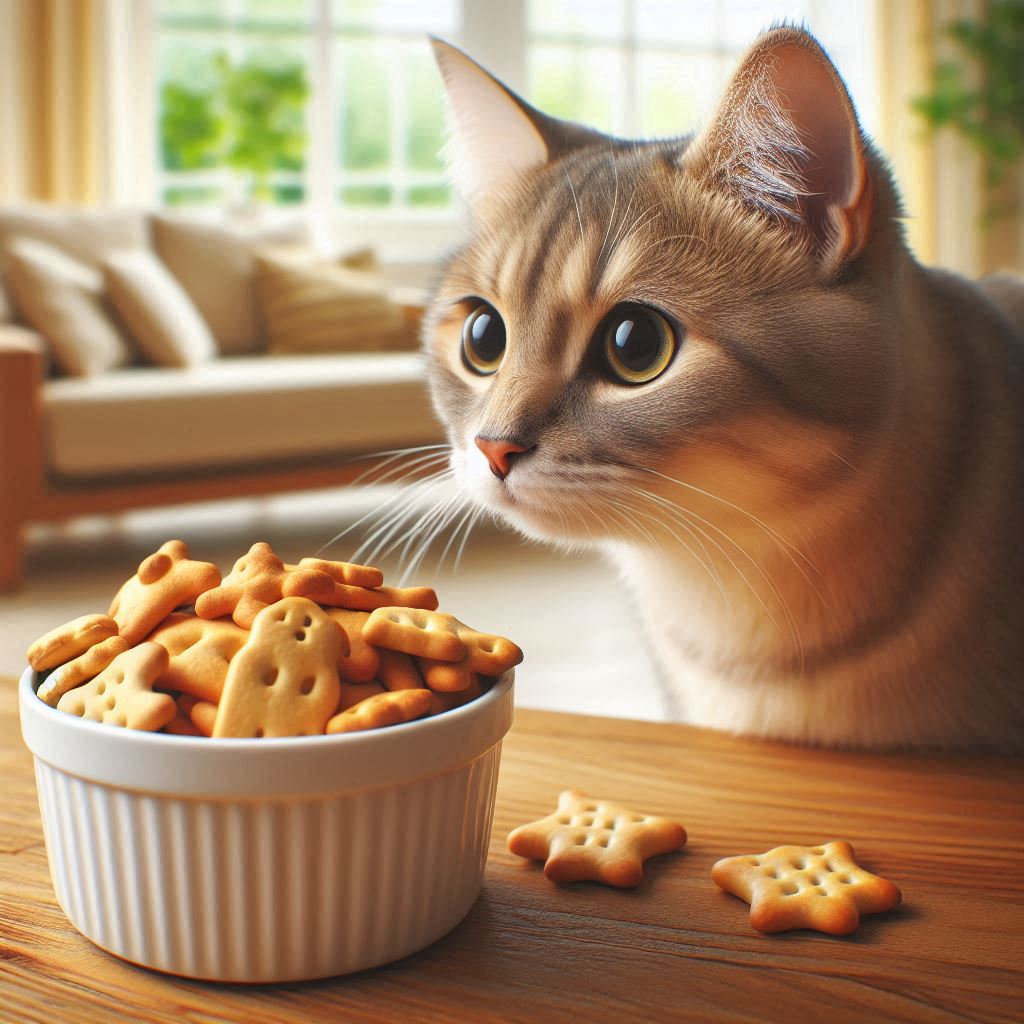Almond milk and cats have gained popularity as a dairy-free alternative for humans, but what about our feline companions? As cat owners, it’s natural to wonder if almond milk is safe for cats or if it poses any risks. In this article, we’ll explore the topic in-depth, covering whether almond milk is safe for cats, any associated risks, and how it fits into your cat’s nutrition plan. You’ll have all the information you need to make an informed decision.
Table of Contents
Is Almond Milk Safe for Cats?
Almond milk and Cats..…!!! The short answer is that while almond milk is not toxic to cats, it’s not particularly beneficial for them either. Cats are obligate carnivores, meaning their bodies are designed to thrive on a meat-based diet. Almond milk, being plant-based, doesn’t provide the nutrients that cats need.
Can Cats Digest Almond Milk?
Cats do not have the enzyme necessary to digest lactose, the sugar found in cow’s milk. This is why many cats are lactose intolerant. Since almond milk is dairy-free, some cat owners may think it’s a safe alternative. However, almond milk is made from almonds, and while almonds are not poisonous to cats, they can be difficult for them to digest in large quantities.
Almond milk is mostly made up of water and ground almonds, so a small sip is unlikely to cause harm. However, Almond milk and cats, shouldn’t become a regular part of your cat’s diet.
The Importance of Hydration
Water is the best liquid for cats. Almond milk or any other liquid should never replace fresh, clean water. Cats are notorious for not drinking enough water, and dehydration can lead to various health problems like urinary tract infections and kidney disease. Ensuring your cat has access to plenty of water is critical for their well-being.

Nutritional Profile of Almond Milk
Almond milk is low in fat and calories, which may seem appealing to cat owners. However, the nutritional content of almond milk doesn’t align with the dietary needs of cats.
Ingredients in Almond Milk
- Water: Almond milk is mostly water, which isn’t harmful but lacks nutrients.
- Almonds: While almonds are not toxic, they can be hard for cats to digest in large amounts.
- Sweeteners: Some almond milk products contain sweeteners like sugar or artificial flavors. These additives can be harmful to cats, potentially leading to obesity or other health problems.
- Vitamins and Minerals: Almond milk may be fortified with vitamins like vitamin E and calcium, but these are designed for human needs, not cats. Cats require different vitamins and nutrients, such as taurine and animal-based proteins.
While almond milk may have some health benefits for humans, such as being a low-calorie alternative to cow’s milk, these benefits do not extend to cats.
Why Cats Don’t Need Almond Milk
Cats require a diet rich in protein, primarily from animal sources, and almond milk simply doesn’t meet those nutritional requirements. Feeding your cat almond milk, even in small amounts, can disrupt their balanced diet. It can fill them up without providing the essential nutrients they need, leading to deficiencies over time.
Potential Risks of Giving Almond Milk to Cats
Almond milk and cats, While a small sip of unsweetened almond milk is unlikely to harm your cat, larger amounts of regular consumption can lead to health issues. Here are some risks to be aware of:
1. Digestive Upset
Almond Milk and Cats”, Cats have sensitive digestive systems, and introducing foods that they are not accustomed to, like almond milk, can cause gastrointestinal distress. Symptoms may include:
- Diarrhea
- Vomiting
- Gas or bloating
If your cat shows any signs of discomfort after drinking almond milk, it’s best to avoid giving it to them in the future.
2. Weight Gain and Obesity
Some almond milk products contain added sugars, which can contribute to weight gain in cats. Even though almond milk is low in calories, sweetened versions can have more calories than you’d expect, which is problematic for cats that are prone to obesity.
3. Allergic Reactions
Although rare, some cats can have allergic reactions to almonds or ingredients in almond milk. If you notice symptoms like itching, swelling, or difficulty breathing, discontinue giving your cat almond milk immediately and consult a veterinarian.
Alternatives to Almond Milk for Cats
Rather than Almond milk and cats, If you treat your cat or an alternative to cow’s milk, there are safer options available:
1. Cat-Specific Milk
There are several lactose-free milk products specifically designed for cats. These are made to be easier on a cat’s digestive system and provide a more suitable treatment without the risk of gastrointestinal upset.
2. Bone Broth
Bone broth is another great option for cats. It’s packed with nutrients, easy to digest, and can even encourage hydration. Just make sure to choose a broth that is free from onions, garlic, and other harmful ingredients.
3. Wet Cat Food
If you’re looking to increase your cat’s fluid intake, wet cat food is a great way to ensure they’re getting enough moisture. Many cats prefer the taste of wet food, and it helps with hydration as well as providing essential nutrients.
Conclusion: Is Almond Milk Good for Cats?
In conclusion, Almond milk and cats, almond milk is not toxic to cats, but it doesn’t offer any significant health benefits either. While a small amount of unsweetened almond milk is unlikely to harm your cat, it shouldn’t become a regular part of their diet. Cats thrive on a diet that is high in animal proteins, and almond milk lacks the necessary nutrients they need to stay healthy.
If you’re considering giving your cat a treat, it’s best to stick to foods specifically designed for them or consult your veterinarian for advice on what’s safe. Always prioritize your cat’s health by focusing on a nutritionally balanced diet that supports their needs.
FAQs: Almond Milk and Cats
1. Can cats drink almond milk?
- Cats can drink small amounts of unsweetened almond milk, but it doesn’t provide any nutritional benefits. It should only be given occasionally, if at all, as it’s not part of a cat’s natural diet.
2. Is almond milk toxic to cats?
- No, almond milk is not toxic to cats. However, sweetened versions or those with additives can be harmful. It’s essential to avoid giving cats almond milk with added sugars or flavorings.
3. What happens if my cat drinks almond milk?
- In small amounts, unsweetened almond milk is unlikely to cause harm. However, larger quantities may lead to digestive issues like diarrhea or vomiting. Always monitor your cat after introducing new foods.
4. Why is almond milk not good for cats?
- Almond milk lacks the essential nutrients that cats need, such as protein and taurine. Cats are obligate carnivores, and plant-based foods like almond milk don’t support their dietary needs.
5. Can kittens have almond milk?
- No, kittens should not drink almond milk. Kittens need their mother’s milk or a specially formulated kitten milk replacer to meet their nutritional needs.
6. Is there a better milk alternative for cats?
- Yes, lactose-free cat-specific milk is a safer alternative to almond milk. These products are specially formulated to meet a cat’s dietary needs without upsetting their stomach.
“Have more questions about your cat’s diet? Leave a comment or contact your vet for advice!”
www.foodnutro.com



